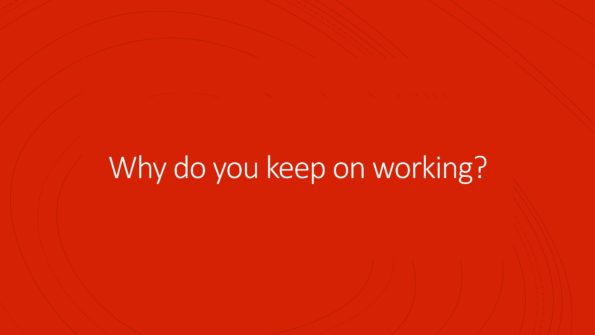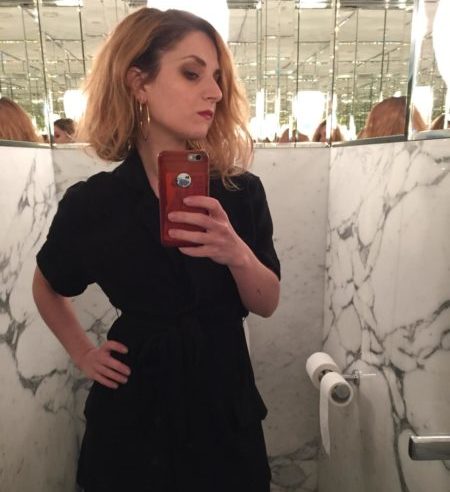Search
To search for an exact match, type the word or phrase you want in quotation marks.
A*DESK has been offering since 2002 contents about criticism and contemporary art. A*DESK has become consolidated thanks to all those who have believed in the project, all those who have followed us, debating, participating and collaborating. Many people have collaborated with A*DESK, and continue to do so. Their efforts, knowledge and belief in the project are what make it grow internationally. At A*DESK we have also generated work for over one hundred professionals in culture, from small collaborations with reviews and classes, to more prolonged and intense collaborations.
At A*DESK we believe in the need for free and universal access to culture and knowledge. We want to carry on being independent, remaining open to more ideas and opinions. If you believe in A*DESK, we need your backing to be able to continue. You can now participate in the project by supporting it. You can choose how much you want to contribute to the project.
You can decide how much you want to bring to the project.

Writers, Artists, Readers: A*DESK VOUS POSE UNE QUESTION
In November 1919, the magazine Littérature – edited by Louis Aragon, André Breton and Soupault – asked its readers the following question: Pourquoi écrivez-vous? (Why do you write?). The 75 answers were finally published between December 1919 and February 1920 in the three subsequent issues.
Jean Ajalbert does not know why he writes. Picabia does not know either and hopes never to find out. André Gide writes to be read. M. Pierre Mille because he did not get another profession and André Lebey because he does not know how to do anything else. Edmond Jaloux does not write but dies of hunger. Paul Valéry says he does it “out of weakness”. Others write to be able to write better, others to see more clearly and others for love of free action, some write to be able to say what they think without seeing the face of the person to whom they are saying it, there are also those who do it for mere pleasure and vocation or to be rich and loved, and those who write to be able to show that we are still alive, or to fight pain or to shorten time, and there are those who write to love silence or because (simply?) they love the word.
In October 1933, the magazine Commune -the official organ of the Association of Revolutionary Writers and Artists, close to the French Communist Party-, in line with the proposal made by the surrealist publication, asked its readers: Pour qui écrivez-vous? (For whom do you write?). The answers were presented in three issues. Among the respondents, we find those who write for no one and those who write for everyone or those who, like Stendhal, write to the happy few. Most acknowledged writing for oneself. Claude Cahun writes against all those who can read and against oneself. Then there are those who write for the revolution.
In July 2020, we want to propose another question to you. But what is the question now? How to find the right question in the face of so many doubts and uncertainties? We could ask you why do you write (as Littérature will ask)? Or, for whom do you write (like Commune)? Or perhaps we could try to find out who your (art) works are aimed at – against what or who? Or perhaps because you are an artist rather than a clerk, teacher, worker or soldier? Or perhaps…
At the risk of seeming too obvious and naive, today we propose an open survey that does not seek so much to give coherent and argued answers as to be a trigger to (re)think artistic production in this rarefied context that forces us to recalibrate our course both individually and collectively. Thus, if in 2019 Littérature wanted to give an answer to why we were writing and in 1933 Commune asked for whom we were writing, I think it is now pertinent to ask ourselves why we should continue, if we want to continue. We have been at a crossroads for some time. Before taking one path or another, we want to arrive at the question zero: why continue? On the one hand, this question doubles as an invitation to order and share the reasons that lead us to stay. On the other hand, it is presented as a rhetorical question that weakly enunciates our desire to abandon. In any case, we challenge this subject that in 2020 continues to paint, sculpt, record, write, perform…
Artist, writer, curator, critic:
WHY DO YOU KEEP ON WORKING?
You can send your answer to: giselachillidaespinosa@gmail.com

Gisela Chillida (Barcelona, 1987) is an art critic, independent curator and cultural manager. She writes regularly for the magazines and publications Bonart, Hänsel i Gretel, Núvol-Digital de Cultura, La Maleta de Portbou, Politica&Prosa and Diario Levante. Recently, he has published the book “Galeries d’art a Catalunya” and the catalogue of the exhibition “Tàpies/Alcaraz/Rubert” at Kunst Lager Haas in Berlin. Some of her exhibitions as a curator have been shown in the galleries Àngels Barcelona (Enésima Intempestiva), Arte Aurora (El pliegue y Seastanding) and Àcid Sulfúric (Europolis), the space Cera 13 (Luna y polvo) or in Fase Espacio de Creación y Pensamiento. Since 2018, she coordinates the Loop Discover Award, held within the framework of the LOOP Barcelona video art festival and fair.
"A desk is a dangerous place from which to watch the world" (John Le Carré)